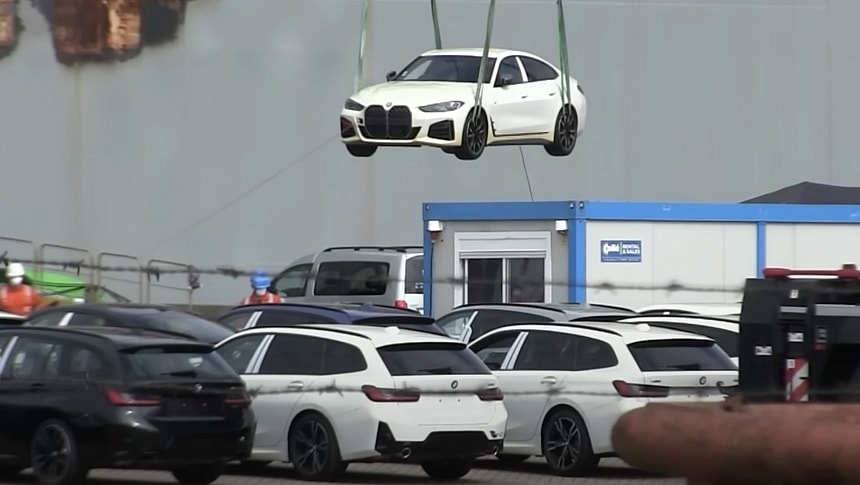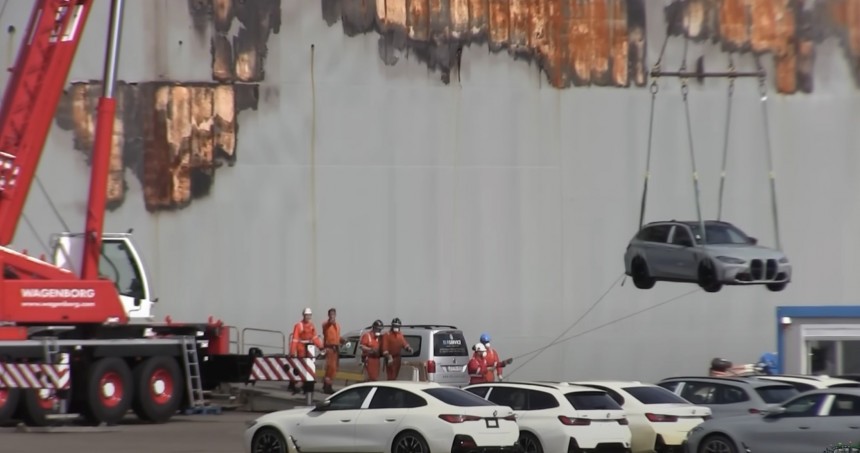The Scorched Ship Saga: Dealers Fight to Sell BMWs That BMW Insists Are Unsalvageable

In a legal battle as fiery as the high seas blaze that sparked it, BMW finds itself embroiled with a consortium of Rotterdam entrepreneurs aiming to sell cars rescued from the ill-fated Fremantle Highway. This ship, which caught fire at sea last year, was carrying over 3,700 vehicles, including 260 brand-new BMWs. The German automaker argues that these cars, despite their seemingly intact exteriors, may have compromised safety and structural integrity due to the intense heat they were exposed to during the incident.

The tale began on July 25, 2023, when the Fremantle Highway, en route from Bremerhaven, Germany to Port Said, Egypt, was struck by disaster off the coast of the Dutch island of Ameland. A sudden fire engulfed the loading area of the ship late at night, tragically claiming the life of one crew member. Despite swift firefighting efforts and natural forces aiding the ship's relocation to Eemshaven port, the damage was colossal. Initial estimates pegged the loss at roughly 300 million euros, with insurance companies writing off the freight as a total loss.
Yet, hope flickered for the entrepreneurs who acquired nearly 1,000 unburned vehicles from the lower decks. Through an intermediary who purchased the vehicles from a Taiwanese insurance company, the group aimed to turn a profit by selling these 'fire-kissed' BMWs in late 2023. However, BMW disagreed vehemently, filing a preliminary injunction in December to halt these sales, citing grave safety concerns.
During a court hearing in The Hague, the entrepreneurs' lawyers argued that the cars only bore surface soot and were still roadworthy. This stance starkly contrasted with BMW's position that the vehicles were fundamentally compromised. According to BMW's lawyers, searing temperatures likely affected vital components, including wiring, paint, and metal structures, making them unsafe for any use.
The Rotterdam group, undeterred, suggested selling these cars in regions with less stringent safety standards than Europe. BMW, however, rejected this idea, emphasizing that safety should not be compromised for anyone, no matter where they reside. The automaker remains steadfast in its assertion that these vehicles should never be driven again. A notable point of comparison is that Audi and Mercedes quickly chose a different path, sending their fire-affected cars to recycling facilities, preventing any chance of them hitting the roads.
The visual aftermath of this sea-bound catastrophe can be seen in a video from ten months ago. It shows BMWs being unloaded by crane and lined up at Eemshaven port, their appearances marred by soot, especially on the lighter-colored models. Interestingly, 498 electric vehicles (EVs) on board, initially thought to be the fire’s source, were recovered unburned, debunking speculations regarding their involvement. The incident remains under investigation.

BMW's steadfast opposition to selling these compromised cars showcases the company's commitment to safety and quality. While the Rotterdam group's entrepreneurial spirit is commendable, the fate of these BMWs remains in the balance as legal and ethical considerations collide.
